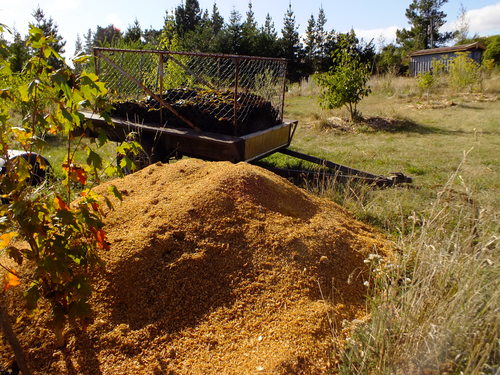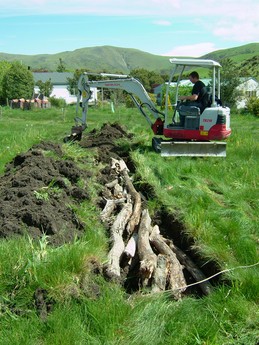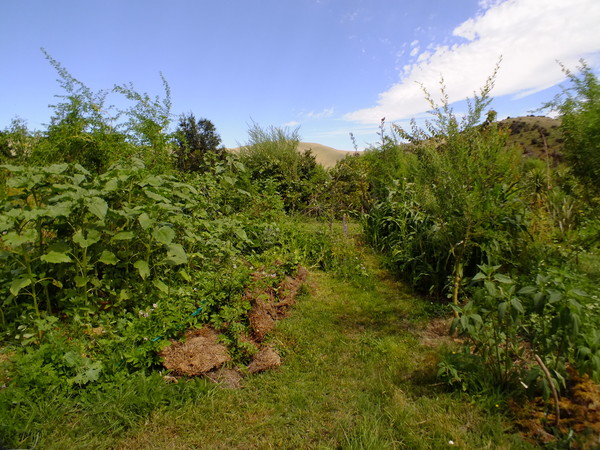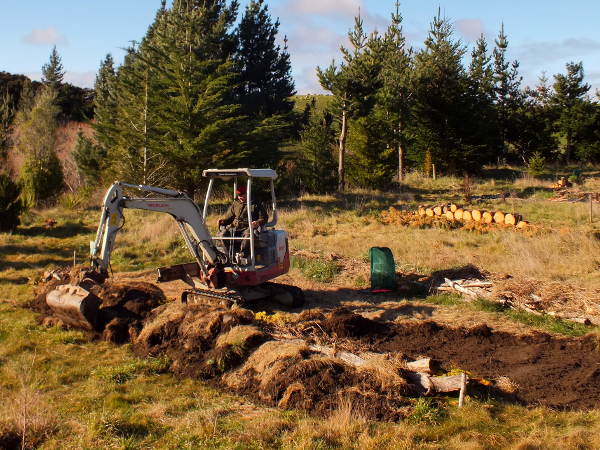Why add biomass
Biomass plays a crucial role in moisture retention in a forest garden, enhancing its sustainability and resilience.
1. Improved Soil Structure
- Organic Matter: Decomposed biomass, such as leaves, wood chips, and plant debris, increases the organic matter in the soil. This improves soil structure, making it more porous and better able to retain water.
- Aeration and Drainage: Biomass creates a balance between aeration and water-holding capacity, preventing waterlogging while maintaining sufficient moisture.
2. Mulching Effect
- Evaporation Reduction: A layer of biomass mulch (e.g., straw, wood chips, or leaf litter) covers the soil, reducing direct exposure to sun and wind, which minimizes evaporation.
- Temperature Regulation: Biomass acts as an insulating layer, keeping the soil cooler in summer and warmer in winter, stabilizing the moisture levels.
3. Water Absorption and Storage
- Spongy Material: Biomass like rotting logs and decaying plant material acts like a sponge, soaking up water during rains and slowly releasing it to the soil during dry periods.
- Hydration Buffer: Forest gardens benefit from this reservoir effect, which ensures plants have access to water over time.
4. Soil Microbial Activity
- Fungal Networks: Biomass encourages the growth of beneficial fungi (e.g., mycorrhizal fungi), which form networks that transport water and nutrients to plants.
- Microbial Health: Decomposing organic matter supports a thriving soil microbiome, improving the soil's ability to retain and distribute moisture effectively.
5. Prevention of Soil Erosion
- Ground Cover: Biomass protects the soil surface from heavy rainfall, reducing runoff and allowing water to penetrate the soil.
- Binding Soil Particles: Organic matter helps bind soil particles, maintaining the soil’s capacity to hold water even on slopes or exposed areas.
6. Carbon Sequestration
- Biomass locks carbon into the soil, which helps improve soil quality and its water-holding capacity over the long term.
7. Nutrient Retention
- Water-Holding Nutrients: As biomass decomposes, it releases nutrients slowly, and these nutrients are more effectively held in the moisture-retentive soil.
- Prevents Leaching: Moist, biomass-rich soil reduces nutrient loss through leaching, especially during heavy rains.
8. Long-Term Resilience
- Drought Mitigation: In dry periods, biomass retains moisture longer, reducing the need for supplemental watering.
- Plant Health: Consistent moisture levels lead to healthier plants with better root systems and increased resistance to stress.
Practical Applications in a Forest Garden
- Mulching: Apply thick layers of organic mulch around plants to retain moisture and suppress weeds.
- Hügelkultur Beds: Incorporate buried logs and woody debris to create water-retentive raised beds.
- Chop-and-Drop Mulching: Periodically cut down cover crops or herbaceous plants and leave them on the soil to decompose.
- Compost: Add decomposed organic matter to increase water retention and nutrient availability.





